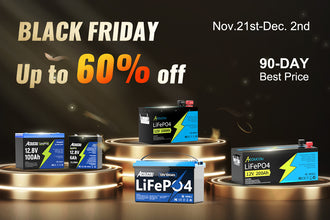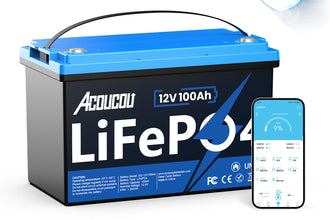

In recent years, there has been a shift towards more efficient and environmentally friendly battery technologies, with AGM (Absorbent Glass Mat) and Lithium batteries emerging as two popular options. Both types of batteries have their own unique characteristics and advantages, making it important to understand the differences between them before deciding which is better for a particular application.
What Is AGM Battery?
AGM batteries have been around for several decades and are known for their reliability and durability. They are a type of lead-acid battery that uses a fiberglass mat to absorb the electrolyte, allowing for a spill-proof design. AGM batteries are commonly used in applications such as automotive, marine, and off-grid solar systems. They are known for their ability to provide a steady and reliable power supply, even in harsh conditions.
What is Lithium Battery?
Lithium batteries are rechargeable batteries that use lithium as one of their primary components in the electrode material. They are widely used in various electronic devices, including smartphones, laptops, cameras, and electric vehicles, due to their high energy density, long lifespan, and lightweight design.
AGM Batteries: Time-Tested Reliability
AGM batteries have been a staple in the energy storage landscape for decades, prized for their robustness and ease of maintenance.
Pros:
- Cost-Effective: AGM batteries are typically more affordable upfront compared to their lithium counterparts, making them an attractive option for budget-conscious RVers.
- Ease of Installation: AGM batteries can be easily installed as direct replacements for traditional lead-acid batteries, requiring minimal modifications to existing setups.
- Maintenance-Free: Unlike traditional flooded lead-acid batteries, AGM batteries are sealed and maintenance-free, eliminating the need for regular watering and venting.
- Wide Availability: AGM batteries are readily available and relatively affordable compared to some alternative energy storage solutions, making them accessible to a wide range of consumers.
Cons:
- Lifespan: With life cycles around 300-500, the lifespan of AGM batteries can range from 3 to 5 years.
- Limited Depth of Discharge (DOD): AGM batteries are sensitive to deep discharges, which can significantly shorten their lifespan if not properly managed.
- Weight and Size: AGM batteries tend to be heavier and larger compared to lithium batteries, occupying more space within the RV and adding to its overall weight.
- Lower Energy Density: AGM batteries offer lower energy density compared to lithium batteries, meaning they provide less power for their size and weight.
Lithium Batteries: Power and Efficiency

Acoucou lithium batteries have emerged as a game-changer in the energy storage industry, offering unparalleled performance and efficiency.
Pros:
- High Energy Density and Lightweight: LiFePO4 batteries have a higher energy density compared to AGM batteries, meaning they can store more energy in a smaller and lighter package. LiFePO4 battery is much lighter than lead-acid battery. Acoucou LiFePO4 12V 100Ah is 29.98 lbs nearly 1/3 of the weight of the same type of lead-acid battery.
- Longer Cycle Life: LiFePO4 batteries can withstand a large number of charge/discharge cycles, making them durable and long-lasting. It can generally last for 7 to 10 years of use. Acoucou LiFePO4 battery has more than 6000 cycles and a 10-year life.
- Maintenance-Free: Unlike lead-acid batteries, LiFePO4 batteries do not require regular water replenishment.
- Fast Charging: These batteries can be charged at a faster rate compared to AGM batteries, reducing downtime. There are 3 flexible charging ways of Acoucou for your energy storage.

- Safety and Eco-Friendly: LiFePO4 batteries are the safest battery type available today. BMS can protect the battery better and make it last longer. They have no cobalt or rare earth elements. Being built with non-toxic materials. Acoucou LiFePO4 battery has a built-in BMS that people can check the situation of batteries through Bluetooth in the APP.
- Wide Operating Temperature Range: They can operate effectively in a broad range of temperatures and can be used for various scenarios. Acoucou LiFePO4 batteries can work between -20 ℃ and 45 ℃.
- High Cost: LiFePO4 batteries are generally more expensive to manufacture than some other lithium-ion batteries due to the materials involved.
- Not Resistant to Low Temperatures: When the temperature is below -10 ℃, they decay very quickly, and can only maintain about 50% to 60% of normal battery capacity under -20 ℃.

Choosing between AGM and Lithium batteries ultimately boils down to your specific requirements, preferences, and budget. If you prioritize affordability, reliability, and simplicity, AGM batteries may be the better option for you. However, if you seek superior performance, efficiency, and longevity, lithium batteries are worth the investment.










